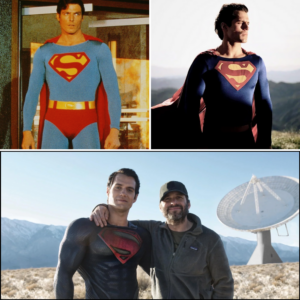Johnny Depp is a paradox—a Hollywood icon who shuns the spotlight, a heartthrob who hides behind prosthetics, and an artist who transforms the bizarre into the beautiful. For over three decades, Depp has captivated audiences with his chameleon-like ability to inhabit quirky, unconventional characters, earning him the moniker “Hollywood’s Essential Weirdo.” From the scissor-handed outcast in Edward Scissorhands to the swashbuckling Captain Jack Sparrow, Depp has made a career of turning weird into wonderful, redefining what it means to be a leading man. Yet, his journey has been far from smooth, marked by box-office triumphs, critical flops, and personal controversies that have tested his resilience. This is the story of Johnny Depp, a man whose eccentric genius and soulful vulnerability have left an indelible mark on cinema and culture.
The Making of a Maverick
Born on June 9, 1963, in Owensboro, Kentucky, John Christopher Depp II grew up in Florida, a restless teen with dreams of rock stardom. Dropping out of high school at 15 to pursue music with his band The Kids, Depp’s early life was defined by rebellion and creativity. A chance meeting with Nicolas Cage, arranged by his then-wife Lori Anne Allison, led to an audition for A Nightmare on Elm Street (1984), where Depp landed a small but memorable role as a teen devoured by a demonic bed. This serendipitous break launched his acting career, though he initially resisted the Hollywood machine, wary of being typecast as a teen idol.
Depp’s breakthrough came with the TV series 21 Jump Street (1987–1990), where he played an undercover cop. Despite the show’s success, he felt stifled by its formulaic nature and sought roles that allowed him to flex his creative muscles. His collaboration with director Tim Burton on Edward Scissorhands (1990) marked a turning point. As the pale, gentle misfit with blades for hands, Depp infused the role with a haunting vulnerability that resonated with audiences. The film’s success established him as more than a pretty face—he was an actor unafraid to embrace the strange. As director Jim Jarmusch later noted, “He’s moody & very emotional & very sensitive… but as a person he has a very deep soul.”
The Burton Effect: Crafting a Weirdly Wonderful Persona
Depp’s partnership with Burton became a cornerstone of his career, producing a string of films that showcased his knack for the eccentric. In Ed Wood (1994), he portrayed the infamously inept filmmaker with a blend of earnestness and absurdity, earning critical acclaim. Sleepy Hollow (1999) saw him as a quirky Ichabod Crane, while Charlie and the Chocolate Factory (2005) transformed Willy Wonka into a pale, peculiar visionary. Perhaps their most celebrated collaboration was Sweeney Todd: The Demon Barber of Fleet Street (2007), where Depp’s chilling yet soulful performance as the vengeful barber won him a Golden Globe and an Oscar nomination.
Burton’s faith in Depp’s ability to embody the offbeat was unwavering. “All sorts of things are written about him in the press that are simply not true… in person he’s very funny, a warm guy,” Burton once said. This synergy allowed Depp to push boundaries, using heavy makeup, stylized gestures, and eclectic accents to craft characters that were both alien and deeply human. As Entertainment Weekly noted of his Sweeney Todd performance, “Watching Depp’s barber wield his razors… it’s hard not to be reminded of Edward Scissorhands… and all of the twisted beauty we would’ve missed out on had [Burton and Depp] never met.”
Captain Jack and Global Stardom
If Burton gave Depp a canvas for his weirdness, the Pirates of the Caribbean franchise made him a global superstar. As Captain Jack Sparrow, introduced in The Curse of the Black Pearl (2003), Depp created a character that was equal parts Keith Richards and cartoonish rogue—flamboyant, cunning, and utterly unforgettable. His performance, which dismayed Disney executives who feared he was “ruining the film,” earned him an Oscar nomination and turned the franchise into a $4.5 billion juggernaut. “There’s not a f—ing soul that wants to see Captain Jack Sparrow sad,” Depp once remarked, defending his vision for the character’s irreverent charm.
Sparrow’s success cemented Depp’s bankability, but it also sparked debate about his reliance on quirky roles. Films like Alice in Wonderland (2010), where he played a flamboyant Mad Hatter, and Dark Shadows (2012), as a comedic vampire, leaned heavily on his “recipe” of heavy makeup, hammy accents, and exaggerated gestures. Critics began to note a “weariness amid the weirdness,” arguing that Depp was recycling the same shtick. Yet, his defenders, including fans on X, argue that his choices reflect a deliberate rejection of conventional stardom. “People say I make strange choices, but they’re not strange for me,” Depp has said, emphasizing his fascination with “the worlds inside people.”
The Darker Side: Controversies and Career Struggles
Depp’s career has not been without turbulence. The 2010s saw a string of high-profile flops, including The Lone Ranger (2013), Transcendence (2014), and Mortdecai (2015), which critics panned for his over-the-top performances. By 2016, his star power seemed to wane, with Alice Through the Looking Glass bombing at the box office. Some argued he had become a caricature, with one blogger lamenting, “Johnny Depp ONLY plays weird… he’s just a weirdo who can’t play anything but himself.”
More damaging were the personal controversies that dominated headlines. His 2015 marriage to actress Amber Heard ended in a contentious 2016 divorce, with Heard alleging domestic abuse. Depp denied the claims, and their 2020 UK libel trial against The Sun—which called him a “wife beater”—ruled against him, finding that 12 of 14 alleged incidents of violence had occurred. A subsequent 2022 defamation trial in the U.S., televised and widely discussed on social media, became a media circus, with Depp’s fans fiercely defending him. Posts on X reflect this loyalty, with one user quoting author Gregory David Roberts: “Johnny Depp’s about the nicest guy on the planet… generous, considerate, modest, brave, intelligent, good-hearted.”
The fallout was severe. Depp was dropped from the Fantastic Beasts franchise, and his career took a hit. Yet, he remained philosophical, telling The Hollywood Reporter in 2024, “I learned, man… Everything that we experience, whether you’re given a snow cone or walking your dog, you learn something.” His financial troubles, including a reported $650 million fortune depleted by lavish spending—$5 million to shoot Hunter S. Thompson’s ashes from a cannon, $30,000 a month on wine—added to the narrative of a star in decline.
A Comeback in the Making?
Despite the setbacks, Depp’s resilience shines through. His 2024 directorial effort, Modi: Three Days on the Wing of Madness, premiered to a standing ovation at the San Sebastián International Film Festival, signaling a potential resurgence. Co-star Riccardo Scamarcio praised his warmth and simplicity, noting, “Johnny is a very special person… he’s self-made & you can feel.” Depp’s recent roles, like his understated performance in Minamata (2020), show he can still deliver depth when given the chance.
His fans remain a powerful force, with X posts celebrating his range and humanity. Director Scott Cooper called him “an actor unlike any other… nobody has the range that Johnny has.” This devotion underscores Depp’s unique appeal: he’s not just a star but a cultural icon who connects with those who feel like outsiders. As Wired put it, “Keep being weird, Johnny, because dressing up as a pirate is no sillier than putting on a cape.”
The Legacy of Weird Wonderful
Johnny Depp’s legacy is one of fearless individuality. He turned down conventional roles—rejecting parts in Interview with the Vampire and Speed—to forge a path that prioritized art over commerce. His ability to make the strange relatable, from a pirate to a demon barber, has inspired actors and fans alike. While controversies have tarnished his image, his contributions to cinema—particularly his collaborations with Burton and his iconic Sparrow—remain untouchable.
Depp’s story is a reminder that “weird” can be wonderful when it’s authentic. As he navigates his comeback, the world watches not just for his next role but for the next chapter of a life lived unapologetically. Whether he’s wielding razors or a compass, Johnny Depp will always be the man who made quirks into classics, proving that the oddest paths can lead to the most extraordinary destinations.





